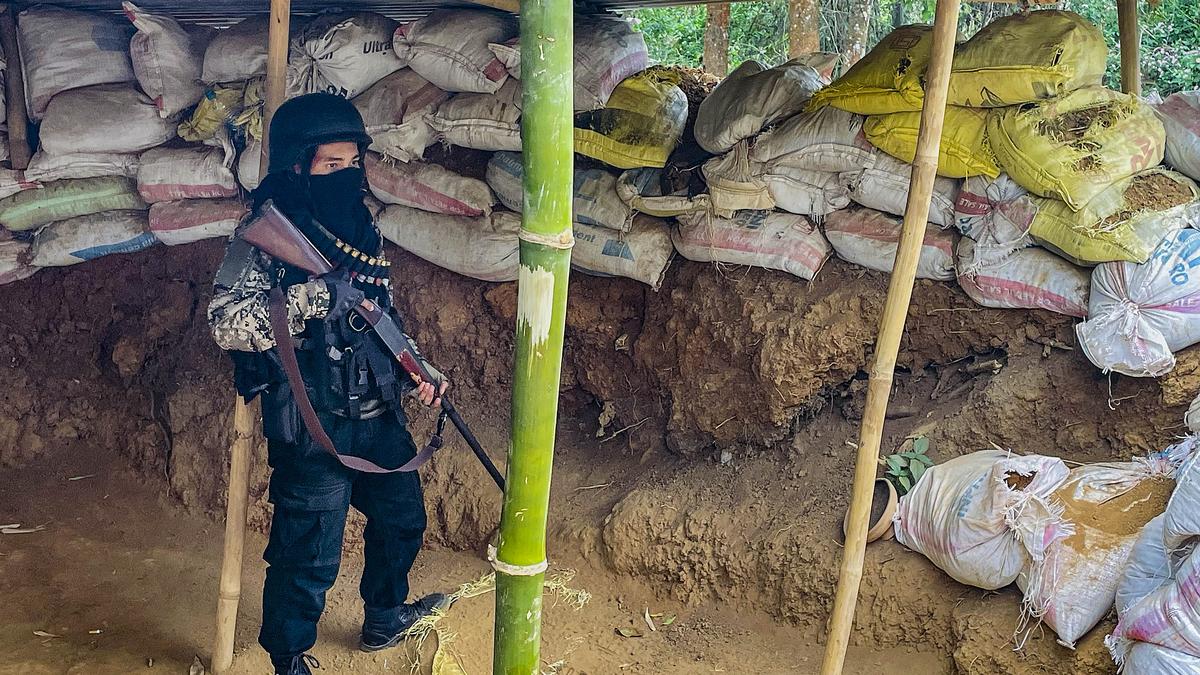By Bassam Masoud and Nidal al-Mughrabi
GAZA/CAIRO (Reuters) -Israel sharply increased strikes on the Gaza Strip, pounding the length of the Palestinian enclave and killing hundreds in a new, expanded phase of the war, as Washington again signalled that Israel could do more to protect civilians in the enclave.
The Israeli military said on Friday it had struck more than 450 targets in Gaza from land, sea and air over the past 24 hours – the most since a truce with Hamas collapsed last week and about double the daily figures typically reported since.
Decrying a “spiralling humanitarian nightmare”, U.N. Secretary-General Antonio Guterres meanwhile declared there was no effective protection of civilians in Gaza and nowhere in the enclave was safe, hours before the U.N. Security Council was set to vote on a demand for a humanitarian ceasefire there.
“We are at breaking point,” he told the U.N. Security Council, saying the collapse of the humanitarian system could result in a complete breakdown of public order.
“The people of Gaza are being told to move like human pinballs – ricocheting between ever-smaller slivers of the south, without any of the basics for survival,” he said, referring to Israeli instructions to Gazan civilians to move to safe areas.
In Washington, the White House on Friday said more could be done by Israel to reduce civilian casualties and the U.S. shared international concerns about the humanitarian situation in Gaza.
“We certainly all recognize more can be done to try to reduce civilian casualties,” White House national security council spokesman John Kirby told reporters.
On Thursday, U.S. Secretary of State Antony Blinken said in Washington that it was imperative Israel took steps to protect Gaza’s civilian population. “And there does remain a gap between…the intent to protect civilians and the actual results that we’re seeing on the ground,” he told a press conference.
With most Gazans now displaced and unable to access any aid, hospitals overrun and food running out, the main U.N. agency there said society was “on the verge of a full-blown collapse” and its ability to protect people there was “reducing fast”.
Residents and the Israeli military both reported intensified fighting in both northern areas, where Israel had previously said its troops had largely completed their tasks last month, and in the south where they mounted a new assault this week.
Gaza’s health ministry reported 350 people killed on Thursday, and on Friday it said the death toll from Israel’s campaign in Gaza had risen to 17,487, with thousands more missing and presumed buried under rubble. More strikes were reported on Friday morning in Khan Younis in the south, the Nusseirat camp in the centre and Gaza City in the north.
On Friday evening, residents reported intensified Israeli tank fire on the districts of Shejaia, Nafaq, Sabra and Jala in north Gaza, while health officials said five Palestinians were killed in an air strike on a house in Khan Younis.
Israel’s military said 94 Israeli soldiers had been killed fighting in Gaza since its ground invasion of the densely populated, coastal enclave began in late October.
An Israeli commander, Brig. Gen. Dan Goldfuss, said in a video message recorded in Khan Younis that his forces were fighting house to house and “shaft to shaft”, a reference to tunnel shafts. As he spoke, gunshots rang out in the background.
‘FEAR, HUNGER AND COLD’
Israel launched what it says is a campaign to destroy Hamas after the Islamist militant group attacked Israeli towns in a surprise cross-border incursion on Oct. 7, killing 1,200 people and taking more than 240 hostages.
Since then, most of Gaza’s 2.3 million people have been driven from their homes. With fighting now going on across both halves of Gaza, residents say it has become almost impossible to find refuge.
Israel says it is providing detail about which areas are safe and how to reach them, and says Hamas is to blame for harm that befalls civilians because it operates among them, an accusation the Islamist group denies.
Hamas reported the most intense clashes with Israeli forces were taking place in the north in Shejaia, as well as in the south in Khan Younis, where Israeli forces reached the heart of the enclave’s second-biggest city on Wednesday.
Israel’s military said two of its forces were severely injured in an unsuccessful operation to rescue hostages held in Gaza. It said “numerous terrorists” were killed.
Israel’s chief military spokesperson Rear Admiral Daniel Hagari said Israel had detained more than 200 suspects from Gaza in the last 48 hours and that dozens of them were taken to Israel for questioning, adding Hamas commanders were among them.
Hamas’ armed wing said it had thwarted an attempt to free a captured Israeli soldier, which it said resulted in his death, and that Israeli bombing over Gaza had resulted in the death and injuries of other Israeli hostages.
Reuters journalists in southern Gaza have seen dead and wounded swamping the main Nasser hospital in Khan Younis, where there was no room on the floor on Friday for arriving patients sprawled across blood-smeared tiles.
“We are staying in an area that is, according to maps, a safe area,” said Mohamed al-Amouri, adjusting an oxygen mask for his school-aged son who lay on a hospital bed in soccer shorts with his legs bandaged and his body lacerated.
“Children were on the streets playing, living life normally… We went out after the hit, hearing screams, to find youth, children, women and men in body parts – among them martyrs (dead) and injured.”
Residents reached by telephone elsewhere in Gaza described similar scenes of desperation. With the fighting now going on in all directions, there was no place left to flee, said Yamen, sheltering at a school in central Gaza with his family.
“Inside the school is like outside it: the same feeling of fear of near death, the same suffering of starvation,” he said. “Every day we say we somehow survived. But for how long?”
In Ramallah on the West Bank, Palestinian President Mahmoud Abbas told Reuters an international peace conference was necessary to end the war and work out a lasting political solution leading to the establishment of a Palestinian state.
Thomas White, Gaza head of UNRWA, the U.N. aid agency for Palestinians, wrote on X: “Civil order is breaking down in Gaza – the streets feel wild, particularly after dark – some aid convoys are being looted and U.N. vehicles stoned.”
(Reporting by Bassam Masoud in Gaza, Nidal al-Mughrabi in Cairo, Dan Williams and Henriette Chacar in Jerusalem, Humeyra Pamuk and Simon Lewis in Washington, Gabrielle Tetrault-Farber in Geneva, Michelle Nichols in New York and Reuters bureaux; Witing by Peter Graff and William Maclean; Editing by Angus MacSwan, Mark Heinrich and Diane Craft)
Disclaimer: This report is auto generated from the Reuters news service. ThePrint holds no responsibilty for its content.

 5 months ago
85
5 months ago
85



